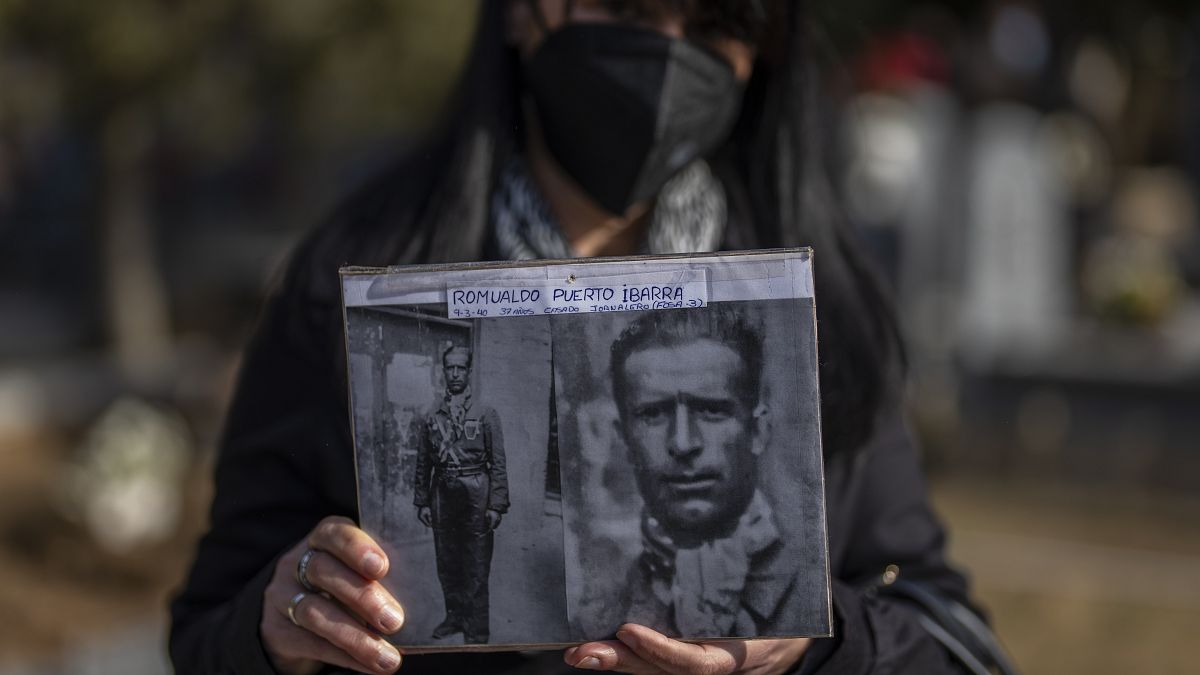The new bill will make it a "state responsibility" to identify the thousands of missing victims of Spain's Civil War and Franco's dictatorship.
Spanish MPs have approved a new law that will enshrine the memory of victims of former dictator Francisco Franco.
The bill was backed by 173 lawmakers in Spain's parliament on Thursday after a long and heated debate. A total of 159 MPs voted against the bill, while there were 14 abstentions.
It is the latest move by Prime Minister Pedro Sanchez to heal divisions and recognise Spain's history during the 1930s civil war and Franco's dictatorship until his death in 1975.
The proposed legislation will for the first time make it a "state responsibility" to search for the missing victims of the Civil War.
Around 114,000 people are still unaccounted for and civic movements have often taken on the responsibility of finding and exhuming the victims from mass graves, without government funding.
Franco's remains were removed from his monumental mausoleum near Madrid in 2019.
"[This law] makes our country a better place and definitively turns the page on the darkest period of our history", said Félix Bolaños, the minister overseeing the bill.
Under the new bill, a DNA bank will be created in Spain to help trace, identify, and map out victims of the Franco regime.
The so-called "Law on Democratic Memory" will also ban organisations that praise or support the policies and leaders of Spain's dictatorship, including the private Francisco Franco Foundation.
Any convictions handed down on political, religious, or sexual grounds during the dictatorship will be annulled, and a special prosecutor's office will also be created to investigate crimes against humanity during the war.
Previous attempts to bring Franco-era officials to justice in Spain have been blocked by a 1977 amnesty law.
The bill is set to go to the Spanish Senate for approval next week and is expected to be finally adopted later this year.
The main right-wing opposition Partido Popular (PP) has repeatedly accused the government of trying to revive the wounds of the past and says they will repeal the new law if elected in 2023.
A previous law aimed at "historical memory" was approved by Spain's former socialist government in 2007 but received no support from former PP Prime Minister Mariano Rajoy.
In a tense debate on Thursday, the far-right Vox party said the new law would "divide Spaniards once again" while the liberal Ciudadanos party accused the government of favouring a "selective memory" law.
Opposition to the bill has been heightened after PM Sanchez offered concessions to the Basque Bildu party, seen as the successor to the political wing of the separatist group ETA.
